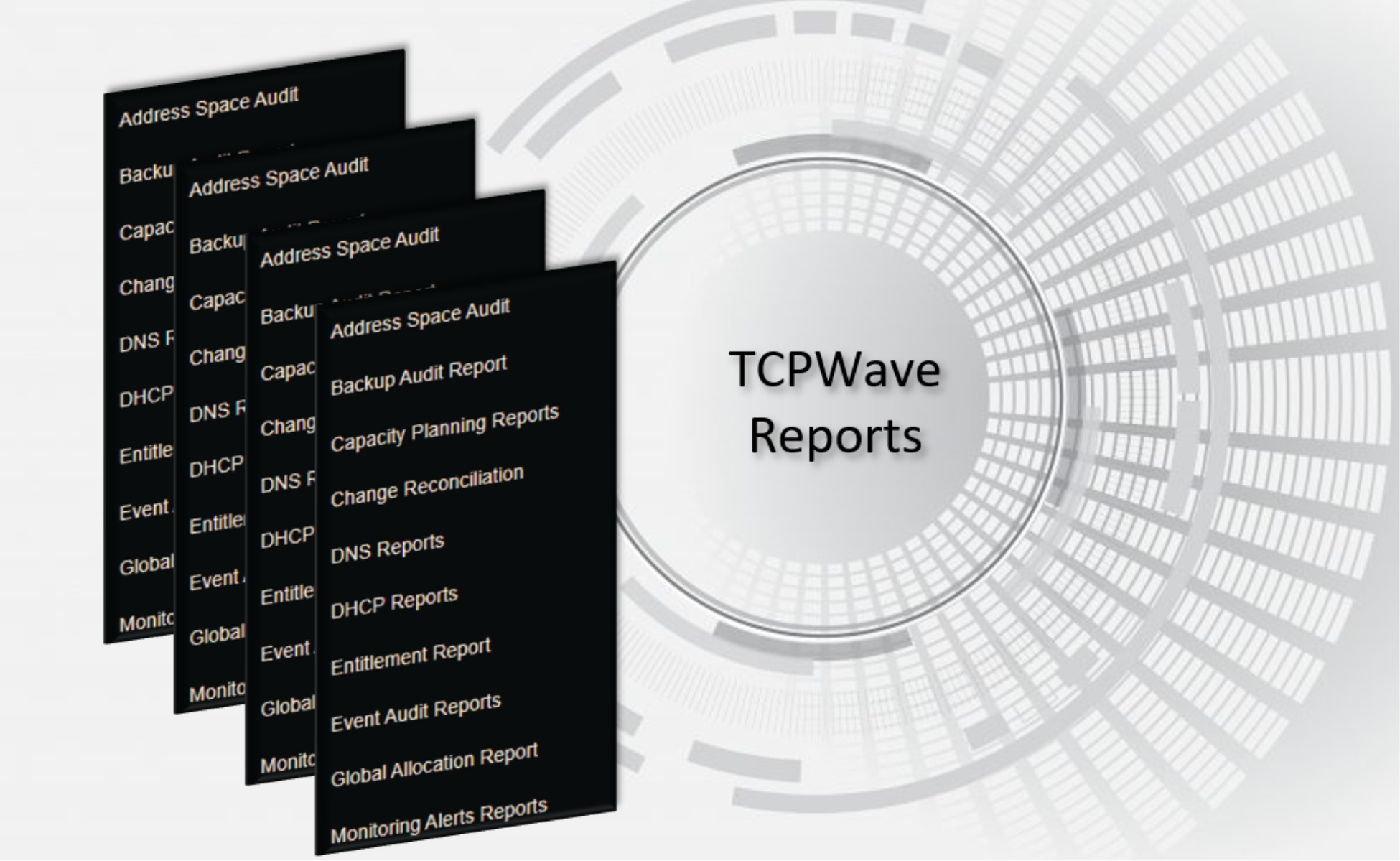
The TCPWave’s DDI Reporting Framework is in-built into the core DDI product with no additional license and is one of the advanced frameworks in the current DDI market. It generates the widespread network reports used by today’s network teams. The network teams can do a detailed investigation of events, identify anomalies, collect audit data. This framework allows the administrators to visualize the data tailored to your organization. As this is more data-driven, it helps the network administrators take insights quickly and easily. This ensures success by assisting them in building a data-driven culture and drafting data-driven judgment, creating an agile and responsive ecosystem.
TCPWave provides over 100+ audit reports as a part of the core TCPWave DDI solution. The network administrators can export the reports in various formats such as PDF, Excel spreadsheet, or CSV. They have the privilege of scheduling the reports for periodic execution and sending the generated report via email to the selected contacts. This white paper provides insights on the IPv6 DNS & DHCP reports.

The IPv6 DNS reports are grouped as follows:
|
Report Name |
IPv6 DNS Appliance Audit |
|
Description |
It provides complete audit information regarding operations performed on a specific IPv6 DNS appliance or all appliances by an administrator. The IPAM retrieves and displays the audit information for a specified time provided by the users. |
|
Grid Data |
|
|
Line Chart Data |
Displays the following information:
|
|
Sample Report |
|
|
Report Name |
IPv6 Reverse Zone Audit |
|
Description |
It provides complete audit information regarding operations performed on a specific IPv6 reverse zone or all by an administrator. The IPAM retrieves and displays the zone audit information for a specified time provided by the users. |
|
Grid Data |
|
|
Line Chart Data |
Displays the following information:
|
|
Sample Report |
|
The IPv6 DHCP reports are grouped as follows:
|
Report Name |
IPv6 DHCP Appliance Audit |
|
Description |
It provides complete audit information regarding operations performed on a specific IPv6 DHCP Appliance or All Appliances by an administrator. The IPAM retrieves and displays the zone audit information for a specified time provided by the users. |
|
Grid Data |
|
|
Line Chart Data |
Displays the following information:
|
|
Sample Report |
|
|
Report Name |
IPv6 DHCP Option Template Audit |
|
Description |
It provides complete audit information regarding operations performed on the DHCP IPv6 Option Template by an administrator. The IPAM retrieves and displays the zone audit information for a specified time provided by the users. |
|
Grid Data |
|
|
Line Chart Data |
Displays the following information:
|
|
Sample Report |
|
The reporting framework is one of the essential products for any organization. The TCPWave’s comprehensive, robust reporting framework provides teams with data to monitor the IT infrastructure, increase productivity, and aid decision-making. It allows the network administrators to analyze data from all network components, including devices, systems, and applications, assess overall performance, and derive comprehensive troubleshooting solutions. The network administrators have the power to manage the entire DDI suite with the most reliable, secure services and the best real-time views – all from a single pane of glass that serves as a single source of truth. For a quick demo, contact the TCPWave Sales Team.